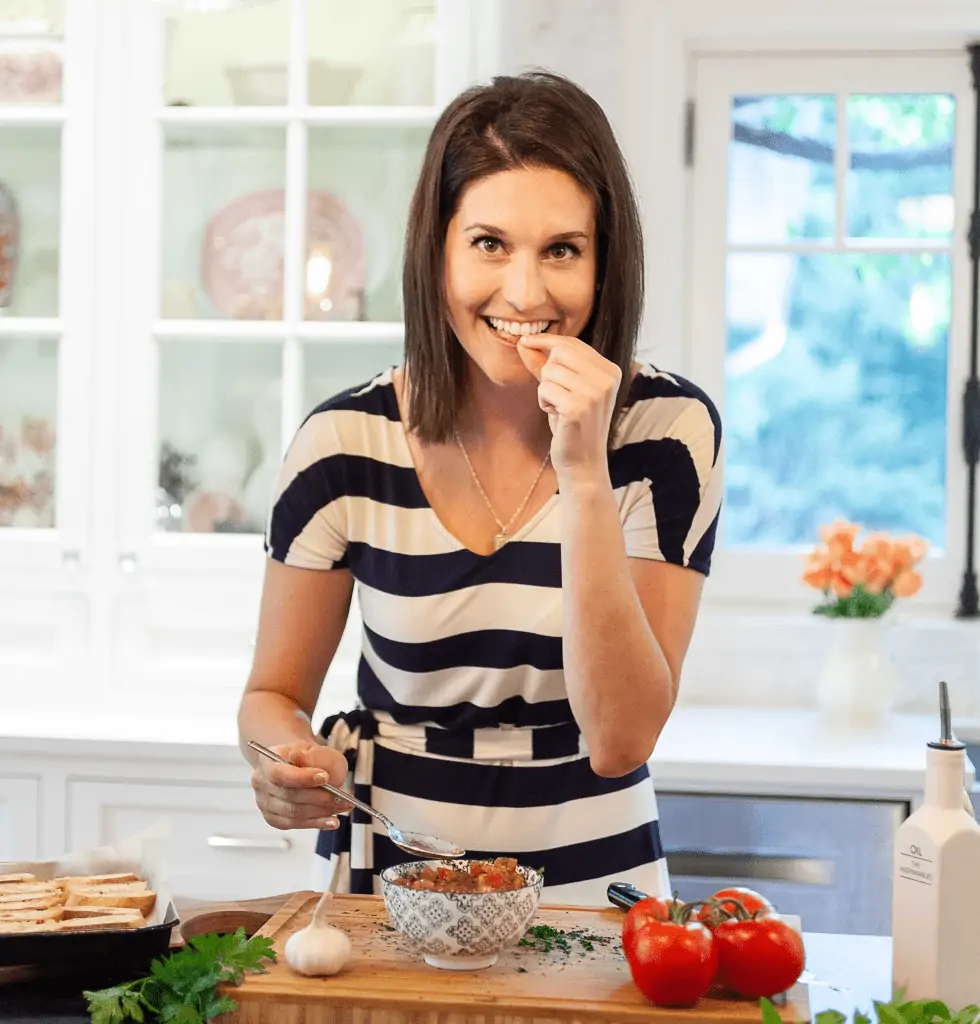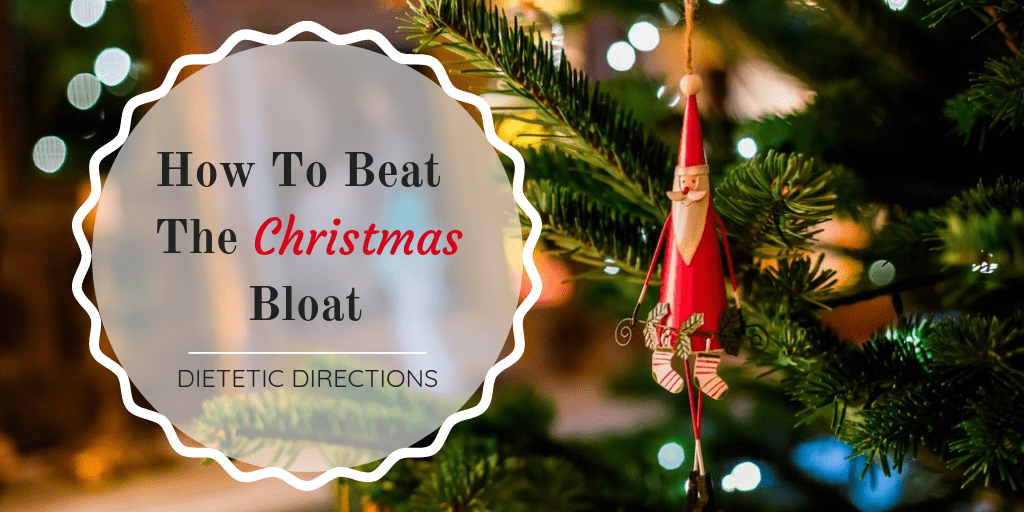
How to Beat the Christmas Bloat
“Tis the season for holiday parties, feasting and … bloating? If you’ve experienced the all-too-familiar stomach pain, swelling and/or a “stuffed” feeling after eating, you’ve had bloating. Some of us bloat situationally, like after Christmas dinner, while others have bloat frequently. Here’s How to Beat the Christmas Bloat.

In honour of the holiday season, I will explore two extremely common questions received in private practice: What causes bloating, and how can I beat the Christmas bloat? First, I will break down what causes bloating. Then, I’ll share 5 Christmas Bloating Culprits with solutions to ease your tummy troubles. Get ready to jingle to a happier belly!
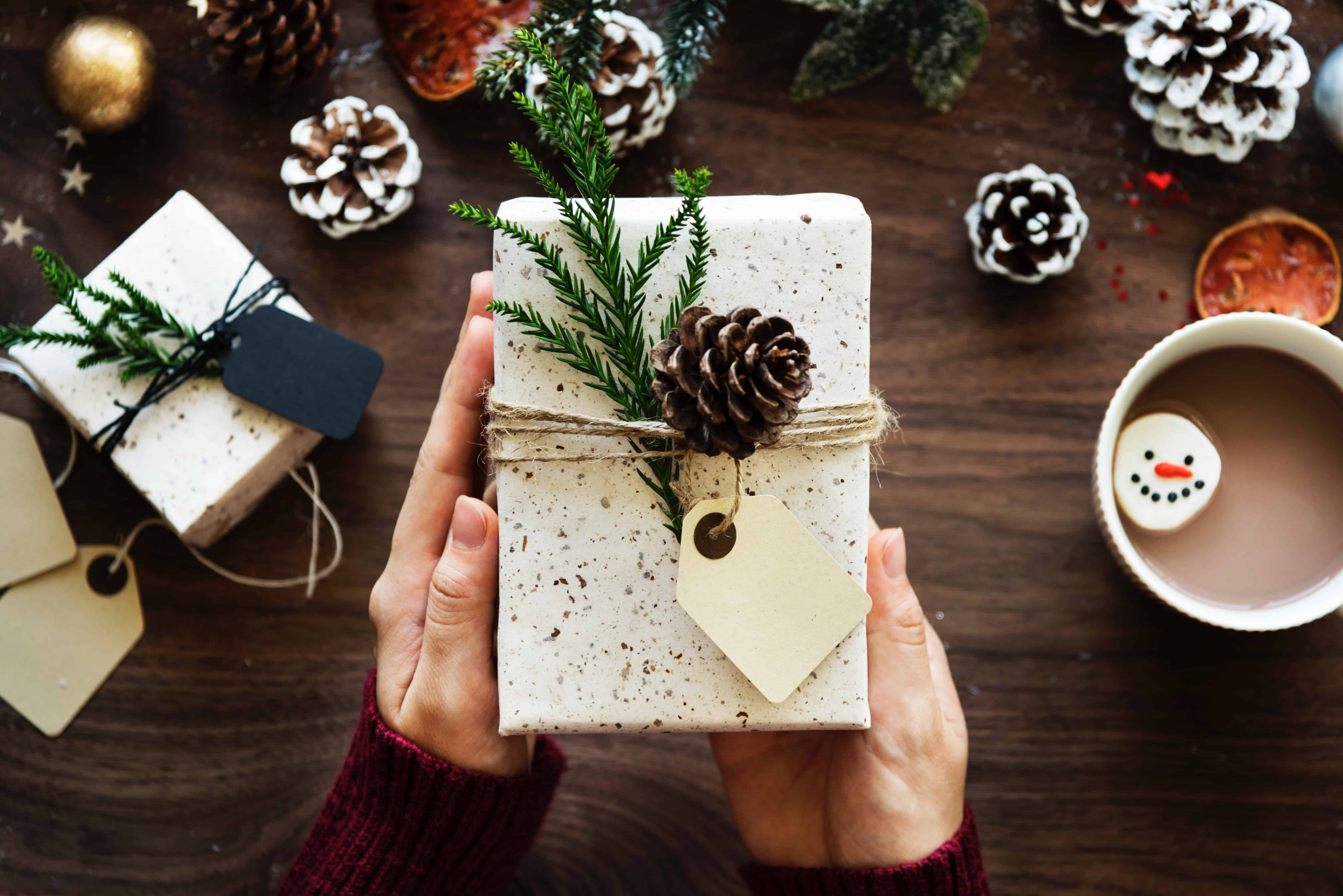
What Causes Bloating?
Bloating occurs when the digestive system has difficulty breaking down foods and may cause a swollen belly. When certain foods aren’t digested properly, gut bacteria in the lower intestines generate extra gases, which can lead to possible belly bloat. Bloating can cause pain and a “stuffed” feeling. Some people describe their bloat as resembling a pregnancy belly or a very noticeable increase in distention.
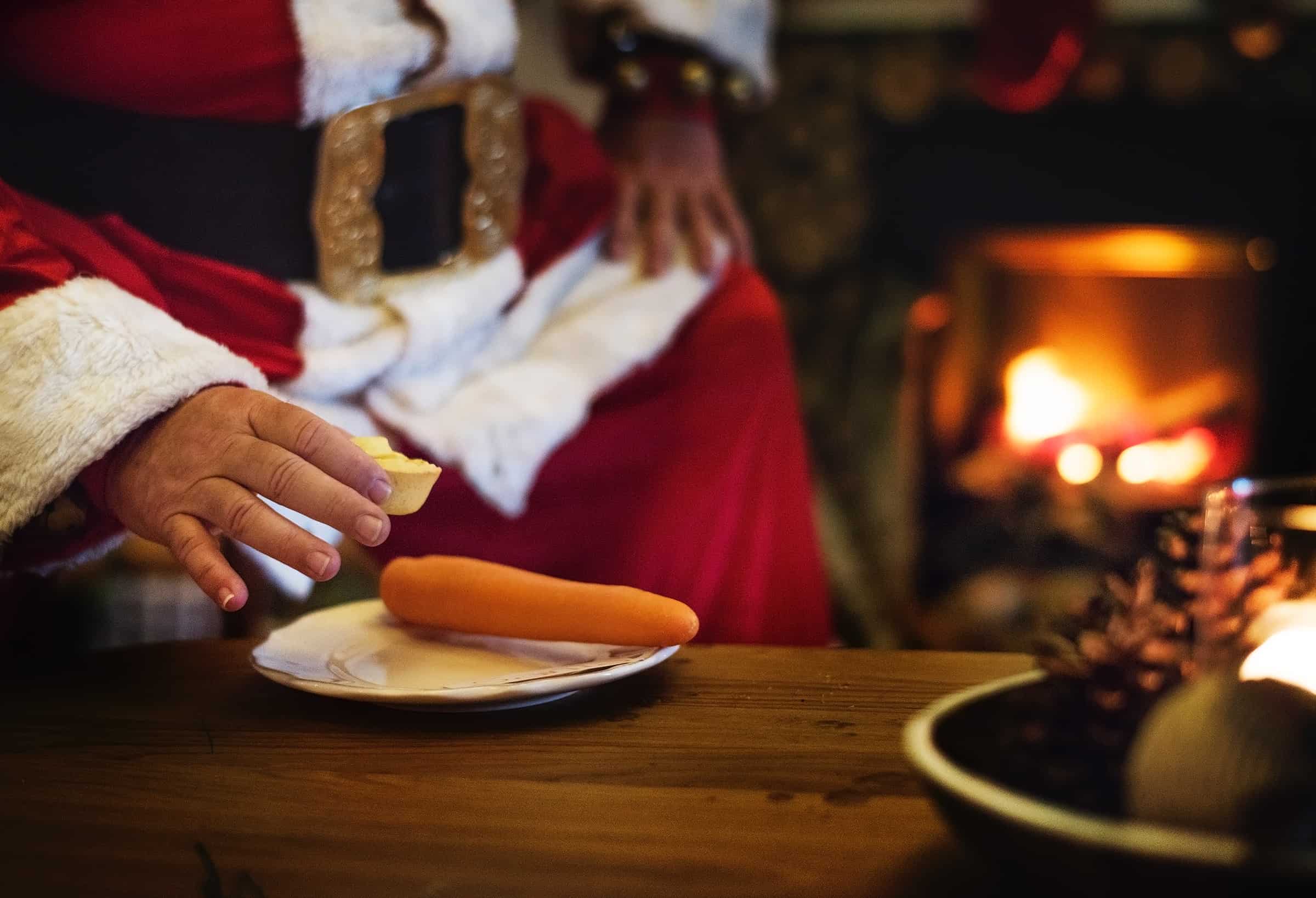
Why Do Some Bloat and Not Others?
Everyone has a different digestive system. What causes one person to bloat may not cause another to do so. Variability in the body’s ability to break down foods (or hard-to-digest sugars) impacts how we feel after eating.
DYK: What causes one person to bloat may not cause the other? Read how to beat the #bloat! Share on XThose with lactose intolerance, for example, may experience bloating (and/or pain, loose bowels) after consuming ice cream. This is because their bodies’ ability to break down lactose sugar is decreased/impaired. However, those without lactose intolerance could eat that same ice cream without bloating, as their bodies can break down lactose sugar and not produce extra gases. The amount of lactose consumed to generate bloating can also vary for those with lactose intolerance.
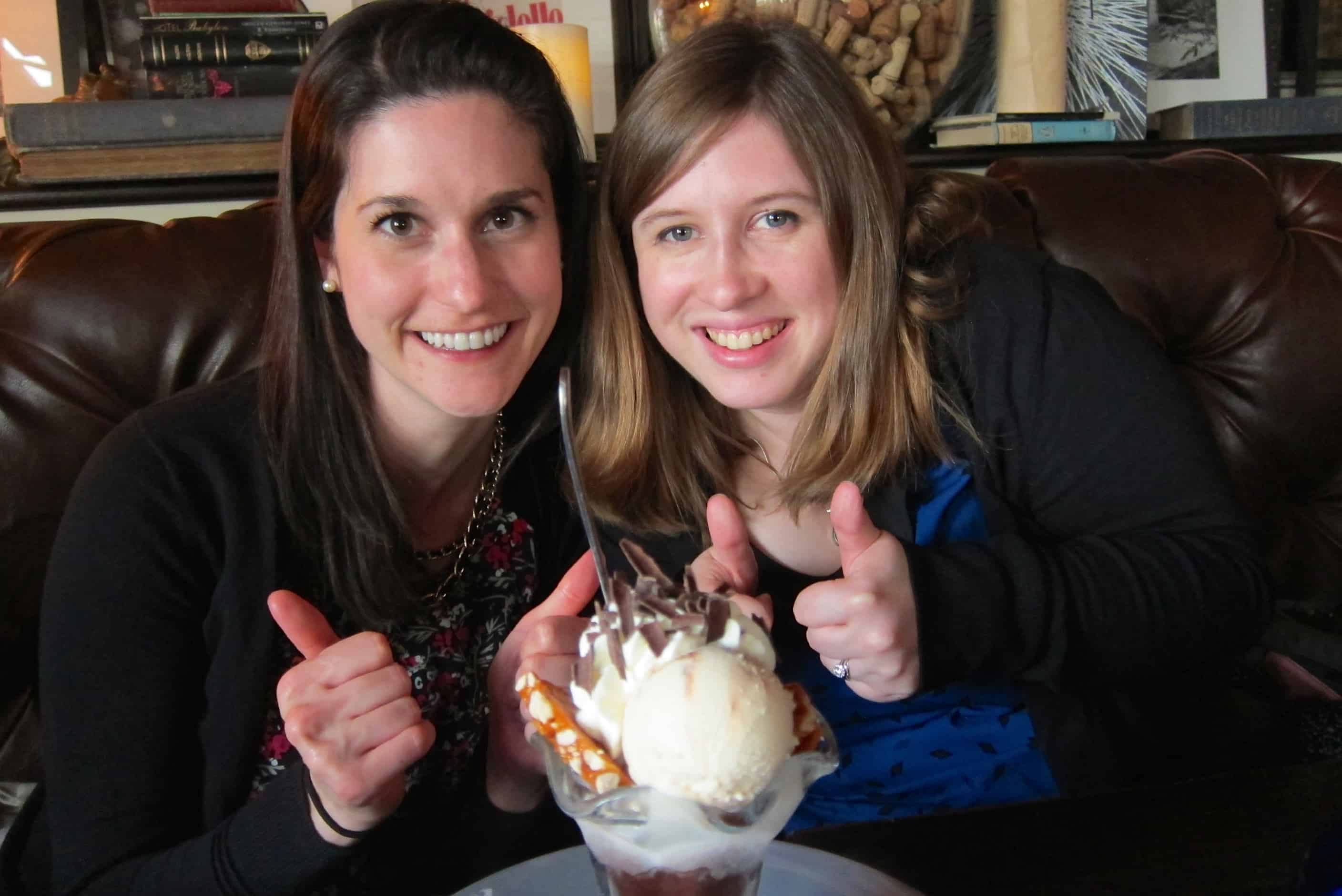
Identify Underlying Cause of Bloating
Addressing the underlying cause of bloating or digestive troubles is vital before taking action. One in seven experience Irritable Bowel Syndrome, characterized by symptoms of bloating, pain, gas and changes in bowels (i.e. diarrhea or constipation). If you suffer from digestion discomfort, seek the help of a specialized digestion dietitian because effective diets can remedy these symptoms. Read HERE on beat the bloat with FODMAP journey blog.

Inflammatory Bowel Diseases (like Crohn’s disease and Colitis) also impact digestion and may cause bloating. Diet can improve these symptoms. Be aware of the frequency of your digestive concerns and speak with your doctor or gastroenterologist to determine the underlying cause of symptoms. This could involve a simple conversation or more rigorous scopes and blood testing.
DTK: 1 in 7 have IBS. #Diet can help with symptoms of bloating, pain, gas & changes in bowels. #digestion #dietitian Share on XTop 5 Christmas Bloating Culprits
Remember that foods that trigger bloating for one might not cause discomfort for another. Here are some of the common triggers for Christmas bloating during the holiday season:
1. Marge Meals/ Over-Eating
This one has to be mentioned first because eating too much (large Christmas dinner) causes tummy distention and often uncomfortable bloating. Quite simply, large portions require our digestive system to work harder, which can lead to bloating.
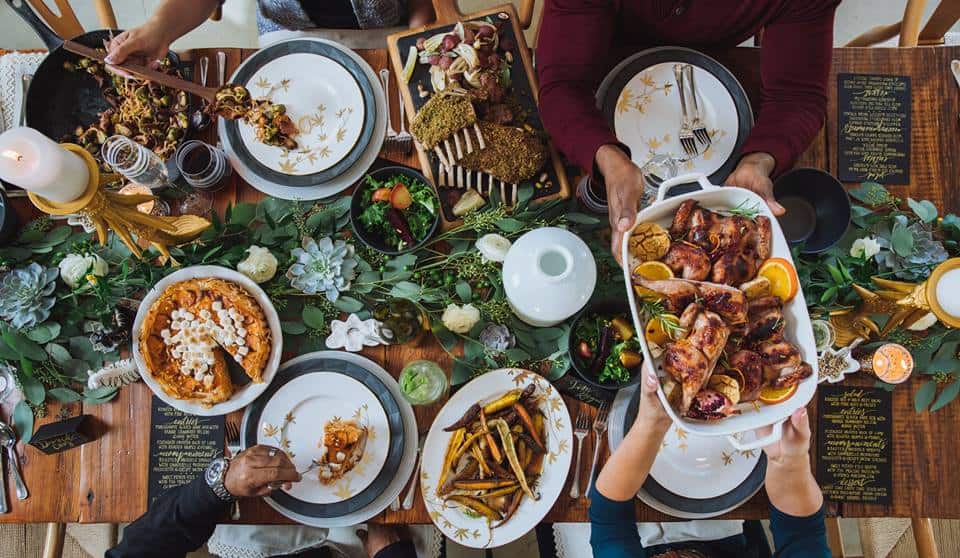
TIP: If you are prone to bloating, try smaller meals to see if this leaves you feeling more comfortable. Keep in mind that fullness signals take up to 20 minutes to reach your brain to decrease appetite. Slowing down before accepting seconds can allow you to realize that you may already be full. If you still feel bloating and discomfort after smaller meals, speak with your doctor or a dietitian specialized in digestion.
Fullness signals take up to 20 minutes to reach your brain to decrease appetite. Slow down to let your brain catch up! #overeating Share on X2. Fizzy Beverages – Beer, Soda, Champagne
Gas generated by gut bacteria causes bloating. Swallowing air when eating or drinking allows excess gas to enter your digestive system, leading to a bloat.
Drinking fizzy or carbonated beverages (ie, beer, soda, champagne, etc) makes you swallow air. These fizzy drinks with carbon dioxide bubbles release gas from the liquid when they reach your stomach. Excess gas may accumulate, depending on your drinking amount, leading to bloating or burping. Liquid calories are also more calorically dense, which can contribute to that over-stuffed feeling on top of an already large meal. Click here to read about nutrition for top festive beverages.
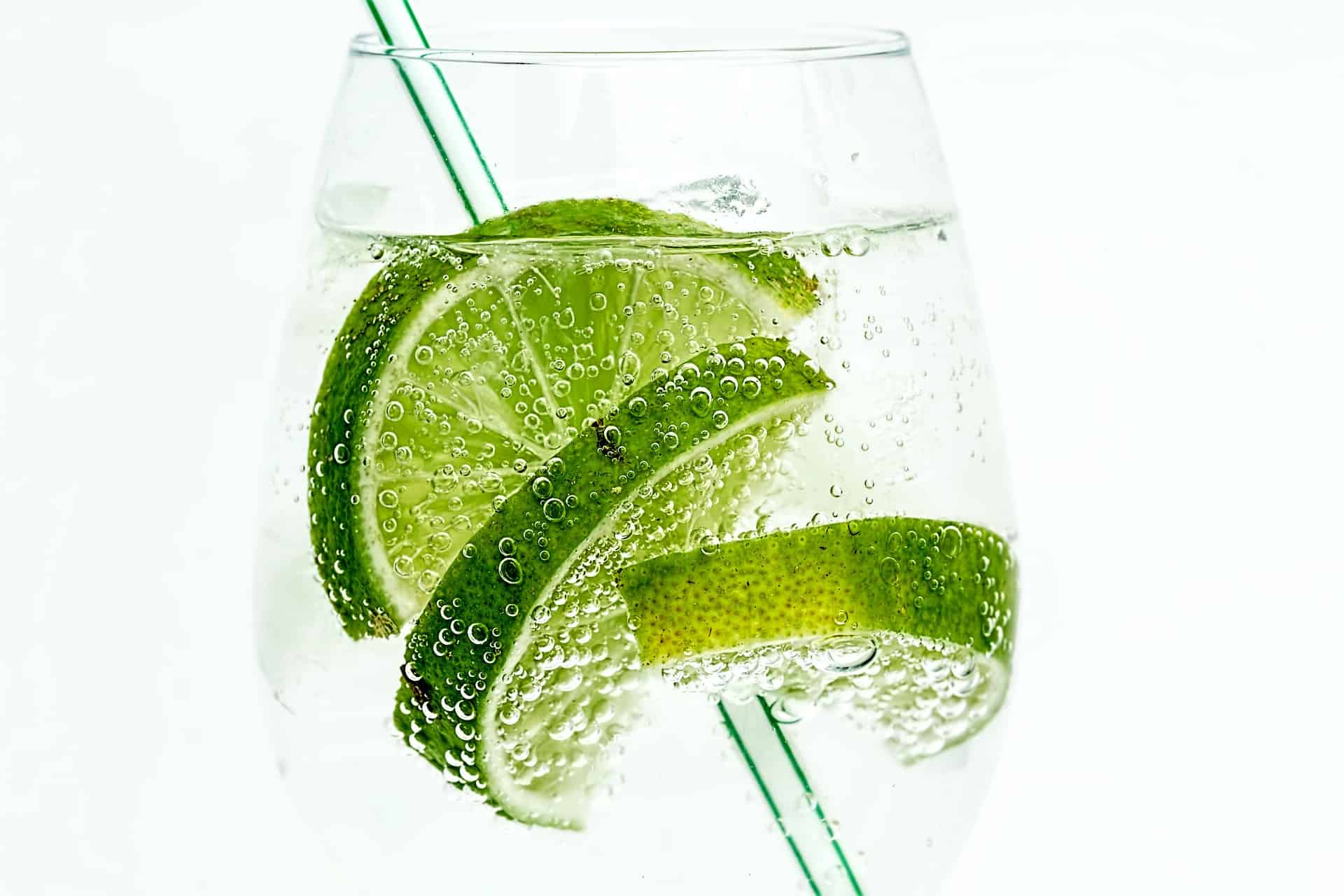
TIP: Choose non-carbonated beverages if carbonation triggers bloating. Avoid drinking with a straw and eating quickly or talking simultaneously, which increases the amount of air swallowed. Instead, eat slowly and chew food mindfully before speaking. Excess stress or anxiety can also increase the amount of swallowed air, triggering a bloat. Breathing exercises, walking, or meditating may reduce bloating by increasing relaxation.
Breathing exercises, taking a walk or #meditating may reduce bloating by increasing relaxation. #wellness #bloating Share on X3. Fatty Foods
This is a common culprit for bloat over the holidays since we tend to eat foods that may be deep-fried or richer options with cheese and creams. Fatty foods slow both digestion and stomach emptying, which can trigger bloating.
TIP: Be mindful of how many fatty foods are consumed and choose fresh or lower-fat alternatives.
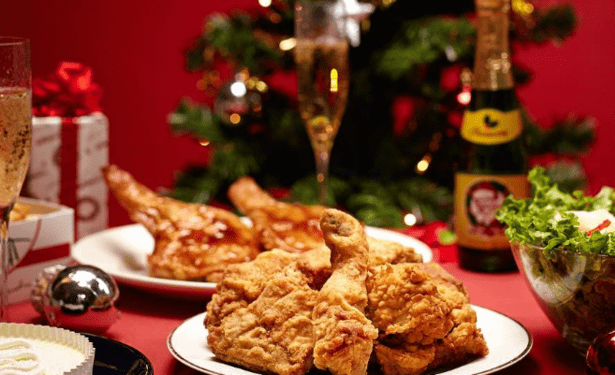
4. Certain Veggies
The tummy-troubling trigger foods of my IBS and IBD clients are often FODMAPs. This acronym describes a collection of poorly digested sugars. For those with IBS, these (poorly digested) sugars can trigger symptoms of abdominal pain, bloating and loose/constipated bowels.
Within the FODMAP diet, certain veggies are more difficult to break down and cause extra gas production. If you are prone to bloating, be cautious on portions of foods like Brussels sprouts, cabbage, broccoli, cauliflower, onions and garlic. These sugars are known as fructans and cause the bowel to distend by drawing more fluid and generating more gas by gut bacteria fermentation.

*Caution, if you do not have digestive issues, please do not restrict or limit these foods. If you are interested in implementing the Low FODMAP diet, it is recommended to work with a Registered Dietitian with a specialization in digestion and FODMAPs.
5. Certain Fibre-Rich Foods
Fibre is the indigestible component of foods. This means that it is not easily digested but travels through the digestive system, picking up cholesterol, slowing down blood sugar release, and leaving us full for longer. Interestingly, less than half of Canadians meet fibre requirements.
If you consume more fibre-rich foods at a Christmas party than you are used to, you may feel gassy or bloated. This is because fibre works your digestive system differently; diverse gut bacteria are required to break down the sugar. For those with IBS or IBD who are following the low-FODMAP diet, beans, chickpeas, and lentils contain a hard-to-digest sugar, which may trigger digestion discomfort. Smaller quantities can help with tolerance.
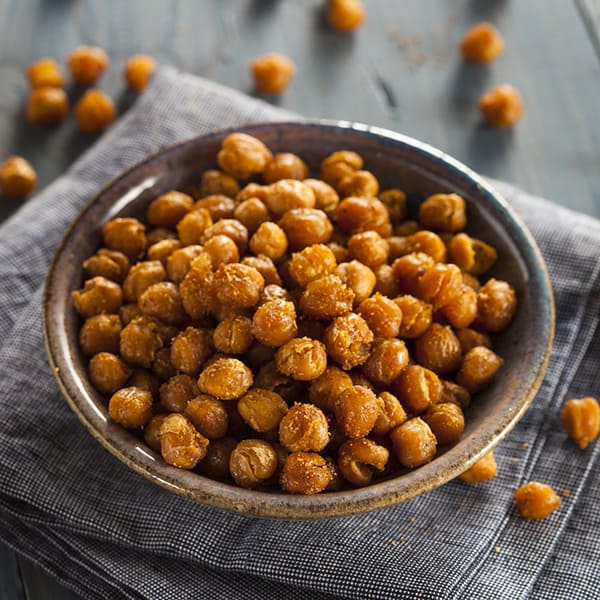
TIP: As a healthy eating principle, most need more fibre to boost their helpful gut bacteria. It is best to boost fibre gradually and with an increase in water to ease digestive discomfort, like gas or bloating. If beans and legumes lead to bloating, it is best to decrease consumption until symptoms have subsided and consider working with a dietitian specialized in digestion.
What if Bloating Happens?
If bloating occurs, ridding your body of the discomfort can be difficult. Avoid further eating or drinking alcohol if you feel bloated, since it’s likely to worsen the bloat. Drinking water may be helpful, along with a brisk walk. Peppermint or ginger teas may soothe the tummy. Constipation can also worsen symptoms of bloating. Boosting your intake of soluble fibre, like chia seeds, can assist in moving bowels.

Bottom Line:
To beat the Christmas bloat, be mindful of portions, carbonated beverages, and the intake of fatty foods, as well as certain veggies and gas-producing foods. Enjoy a balanced breakfast or lunch with fibre and protein before a Christmas feast. This helps to prevent overeating, which often leads to bloating. Also, take into account your digestive system on a regular basis – if you have frequent bloating, pain, constipation/loose bowels, you may benefit from a specialized low-FODMAP diet. Working with a dietitian specialized in digestion can help come up with an individualized plan to eliminate symptoms.

Now it’s your turn! What causes bloating for you? Favourite remedies to keep your tummy happy?
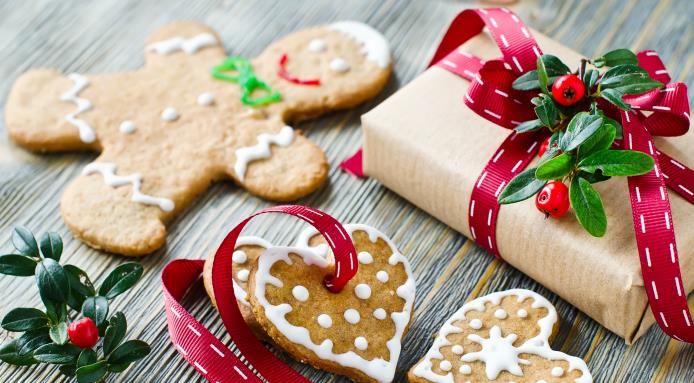
From your dietitians at Dietetic Directions, we wish you a Merry Christmas filled with food, love and fun!


